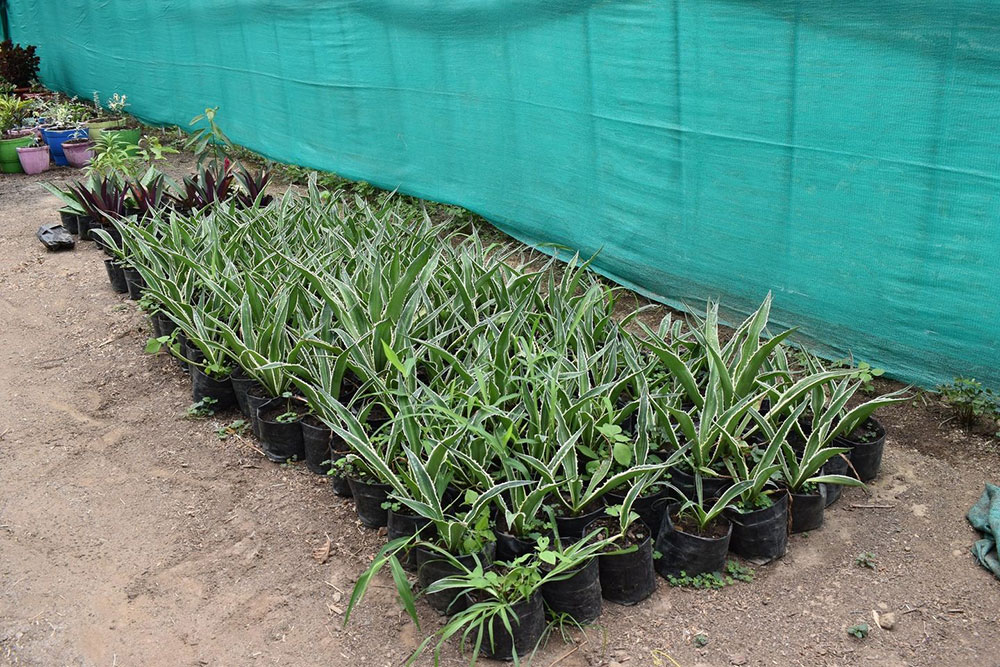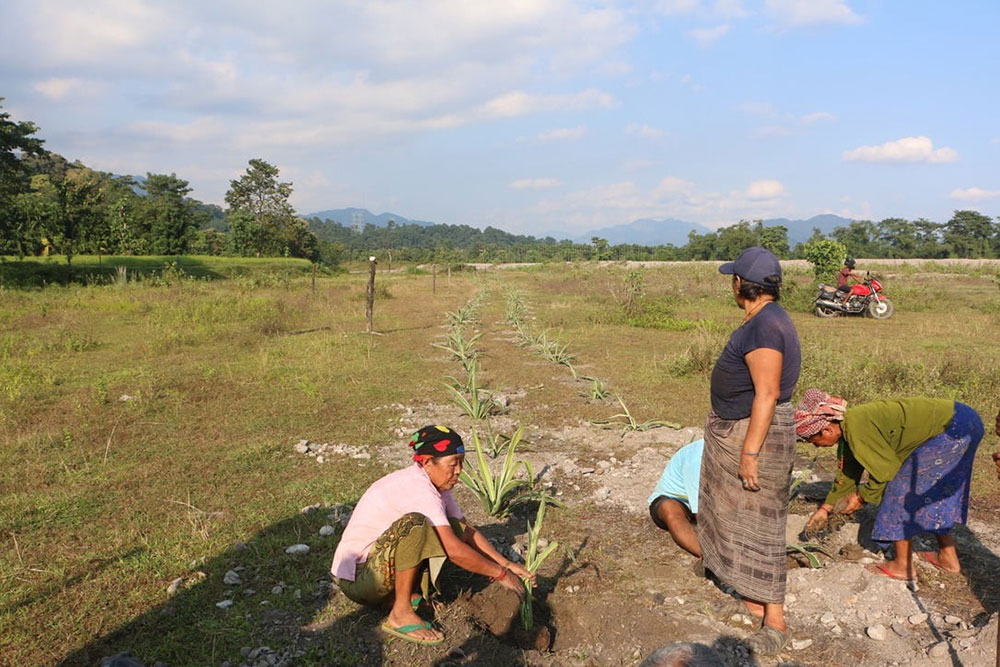Choki Wangmo | Dagana
In what could be a local measure towards tackling human-wildlife conflict (HWC), residents of Lhamoidzingkha in Dagana are planting agave plants.
Agave functions as a fence to control wild elephants from entering the fields and villages.
Studies have shown that agave, a native of arid and semiarid regions of the Americas, will protect elephants from coming into fields when grown in clusters as it has spines along the edges and the tip of the leaf.
Records maintained by the Dagapela forest division reported more than cases of HWC from 2018 to 2019 in Lhamodzingkha. Within the same time period, Dagana reported about 500 HWC cases.
Lhamoidzingkha Gup, Surja Bahadur Limbu, said that despite measures such as electric fencing, canals, and sirens, HWC is an issue in the locality. “I hope the matured agave plant that grows up to five metres will help keep away the elephants.”
He, however, said elephants are intelligent animals.

Villagers plant agave saplings
According to the gup, an endowment fund started in 2012 is not operational today. “Except for seed replacement in case of damage in cereal crops, none of the farmers received compensation.”
A resident of Lhamoidzingkha said he is hoping agave plantation could reduce HWC. “During harvest season, elephants are a nightmare in our village.”
Monitoring and evaluation officer with Agriculture Research and Development Centre (ARDC) in Bajo, Tanka Maya Pulami, said that during consultation meetings, farmers pointed out the need for intervention to reduce crop damage from wild elephants.
However, a forester with the Dagapela forest division said that to reduce conflicts, interventions such as installation of electric fencing and habitat management activities were carried out in the dzongkhag. “Recently we have provided recycled plastic posts for 11 electric fencing user groups under Lhamoidzingkha gewog and two groups under Tsendagang gewog with 11 energisers.”
During the current fiscal year, Tanka Maya Pulami said that a sum of Nu 800,000 was budgeted to conduct on-farm research demonstration and trial on wild elephant crop damage control with use of climate smart technologies like plantation of agave, thorny shrubs, and setting up of bee hives.
ARDC raised more than 5,000 seedlings of agave and distributed them to the three gewogs of Lhamoidzingkha from where the elephants enter the villages.
Supported by the Food Security and Agriculture Productivity Project and implemented by ARDC Bajo, the initiative was started in 2017 and is expected to be completed next year.
Edited by Tashi Dema


